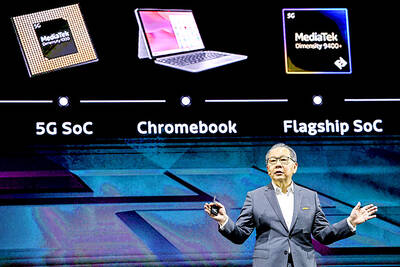Google Inc’s Nest Labs is acquiring Dropcam Inc for US$555 million to boost its offerings for the connected home, it said.
The deal is to be in cash and subject to adjustments, Nest said in a statement on Friday. Dropcam makes in-home cameras that can be checked from a smartphone anywhere in the world, an offering that would broaden Nest’s product lineup into home security. Nest sells digital thermostats and smoke alarms that can also be checked and adjusted remotely from mobile gadgets.
“We care very deeply about helping people stay connected to their home, especially when they are not in their home,” Nest co-founder Matt Rogers said in an interview. “This is another offering that helps people get insights into their home.”
The purchase underlines how Palo Alto, California’s Nest, which Google bought for about US$3.2 billion earlier this year, is working to become a bigger player in connected devices for consumers.
The trend is part of a technology movement dubbed the “Internet of things,” where more gadgets and everyday items are connected to the Web, can deliver data and can be controlled by mobile devices.
The products gather data on consumer habits and usage. Privacy experts have questioned how Google, the world’s largest search engine, would use Nest’s data. Nest has said its information will remain separate from its parent company.
Dropcam’s data will also remain distinct from Google, Rogers said.
The acquisition adds to a growing list of purchases by Google this year as it looks beyond its own engineers for new capabilities. The Mountain View, California-based company disclosed at least five purchases last month and has announced at least three more this month. One of those was a US$500 million deal for Skybox Imaging Inc, which designs satellites that can help Google’s efforts around mapping and Internet access.
Nest, which was cofounded by former Apple Inc executive Tony Fadell, has run into product challenges recently.
In April, Nest said it was suspending sales of its smoke alarms after it determined the units could be switched off unintentionally. The products are now back on the market.
Dropcam, which was founded in 2009, lets users place cameras throughout a home for live viewing and recording.
The cameras also include options for night vision and two-way talking with built-in microphones. The San Francisco-based company’s backers include Accel Partners and Menlo Ventures.
Deal discussions began a little more than a month ago after Nest approached Dropcam, which was not looking to sell, Menlo Ventures managing director Mark Siegel said, adding that the talks were led by Fadell and Rogers.
Menlo Ventures invested about US$8 million in Dropcam in 2012, when the startup was valued at around US$50 million.

SEEKING CLARITY: Washington should not adopt measures that create uncertainties for ‘existing semiconductor investments,’ TSMC said referring to its US$165 billion in the US Taiwan Semiconductor Manufacturing Co (TSMC, 台積電) told the US that any future tariffs on Taiwanese semiconductors could reduce demand for chips and derail its pledge to increase its investment in Arizona. “New import restrictions could jeopardize current US leadership in the competitive technology industry and create uncertainties for many committed semiconductor capital projects in the US, including TSMC Arizona’s significant investment plan in Phoenix,” the chipmaker wrote in a letter to the US Department of Commerce. TSMC issued the warning in response to a solicitation for comments by the department on a possible tariff on semiconductor imports by US President Donald Trump’s

‘FAILED EXPORT CONTROLS’: Jensen Huang said that Washington should maximize the speed of AI diffusion, because not doing so would give competitors an advantage Nvidia Corp cofounder and chief executive officer Jensen Huang (黃仁勳) yesterday criticized the US government’s restrictions on exports of artificial intelligence (AI) chips to China, saying that the policy was a failure and would only spur China to accelerate AI development. The export controls gave China the spirit, motivation and government support to accelerate AI development, Huang told reporters at the Computex trade show in Taipei. The competition in China is already intense, given its strong software capabilities, extensive technology ecosystems and work efficiency, he said. “All in all, the export controls were a failure. The facts would suggest it,” he said. “The US

The government has launched a three-pronged strategy to attract local and international talent, aiming to position Taiwan as a new global hub following Nvidia Corp’s announcement that it has chosen Taipei as the site of its Taiwan headquarters. Nvidia cofounder and CEO Jensen Huang (黃仁勳) on Monday last week announced during his keynote speech at the Computex trade show in Taipei that the Nvidia Constellation, the company’s planned Taiwan headquarters, would be located in the Beitou-Shilin Technology Park (北投士林科技園區) in Taipei. Huang’s decision to establish a base in Taiwan is “primarily due to Taiwan’s talent pool and its strength in the semiconductor

NEW PRODUCTS: MediaTek has been diversifying its product lines to minimize operational risks as mobile chips remain the company’s biggest revenue source MediaTek Inc (聯發科), the world’s biggest supplier of smartphone chips, yesterday said the tape-out process for its first 2-nanometer chip would take place in September, paving the way for volume production of its most advanced chip, likely to be its next-generation flagship smartphone chip, around the year-end at the earliest. MediaTek has been leveraging advanced process technologies from its foundry partner, Taiwan Semiconductor Manufacturing Co (TSMC, 台積電), to build its flagship mobile phone chips, a segment it once relinquished and then recovered four years ago as it released its Dimensity series. In the semiconductor industry, a tape-out refers to the